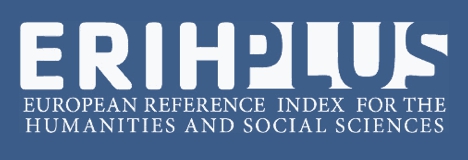ANALYSIS OF (SELF)BIOGRAPHIC NARRATIVES OF GRADUATES IN GEOGRAPHY: REFLECTIONS ON TEACHING IDENTITY AND SCIENCE EPISTEMOLOGY
Abstract
The look at knowledge guide actions, being imperative for the teaching profession to have deep understading over the philosophical bases of science taught, as well as their own senses of education and teaching. Aiming to analyze the epistemological conceptions of Geography, as science and school discipline, expressed in (Self)Biographical narratives of graduates at UFPel/RS, this research was performed in three stages: Survey of the theoretical framework; data gathering with narrative interviews; and analysis of the produced data. As main results it was found a lack of self-referential reflections about epistemology of science and, also, a picture of epistemological disorientation due to the use of contradictory concepts to justify certain positionings.
References
BACHELARD, G. A Poética do Espaço. Eldorado: Rio de JANEIRO, 1989.
BACHELARD, G. A formação do espírito científico. Rio de Janeiro: Contraponto, 1996.
CALLAI, H. C. A formação do profissional de Geografia: o professor. Ijuí: Ed. Unijuí, 2013.
CAVALCANTI, L. S. Bases teórico-metodológicas da Geografia: uma referência para a formação e a prática de ensino. In: CAVALCANTI, L. S. (org). Formação de Professores: Concepções e Práticas em Geografia. Goiânia: Vieira, 2006. p. 27-50.
GUIMARÃES, H. G.; LIMA, E. L. de. Os fundamentos ontoepistemológicos da geografia frente às fragmentações teóricas e práticas. Anais do ENANPEGE, Porto Alegre, Out. 2017.
GOMES, P. C. C. Geografia e modernidade. Rio de Janeiro. Bertrand Brasil, 1996.
GOMES, P. C. C. Quadros geográficos: uma forma de ver, uma forma de pensar. Rio de Janeiro: Bertrand Brasil, 2017.
KAERCHER, N. A. A geografia escolar na prática docente: a utopia e os obstáculos epistemológicos da geografia crítica. 364p.Tese (Doutorado em Geografia Humana) FFLCH, USP, São Paulo, 2004.
LUDKE, M. Pesquisa em educação: abordagens qualitativas. São Paulo: EPU, 1986.
MENEZES, V. S. Geografia escolar: as concepções teóricas e epistemologia da prática do professor de Geografia. 2016. 204 f. Dissertação (Mestrado em Geografia) – Instituto de Geociências, UFRGS, 2016.
MINAYO, M.C. S. (org.). Pesquisa Social. Teoria, método e criatividade. Petrópolis: Vozes, 1993.
MORAES, A. C. R. Geografia – Pequena História Crítica. São Paulo: Editora Hucitec, 1987.
MOREIRA, R. Conceitos, categorias e princípios lógicos para o método e o ensino da Geografia. In: MOREIRA, R. Pensar e ser em Geografia: ensaios de história, epistemologia e ontologia do espaço. São Paulo: Contexto, 2008. p. 105-118.
MORIN, E. A Cabeça Bem-Feita: repensar a reforma, reformar o pensamento. 15ª ed. Rio de Janeiro: Bertrand Brasil, 2008.
PASSEGGI, M. C.; BARBOSA, T. M. B.; CARRILHO, M. F. C.; MELO, M. J. M. de; COSTA, P. L. da. Formação e pesquisa autobiográfica. In: Elizeu Clementino de Souza. (Org.). Autobiografia, histórias de vida e formação: pesquisa e ensino.. 1ªed.Porto Alegre: EDIPUCRS, v 1, 2006. p. 257-268.
PIMENTA, S. G. Formação de professores: identidade e saberes da docência: In: PIMENTA, S. G. (org). Saberes pedagógicos e atividade docente. São Paulo: Cortez, 1999. p. 15-34.
PONTUSCHKA, N. N.; PAGANELLI, T. I.; CACETE, N. H. A Geografia como ciência e disciplina escolar. In:____. Para Ensinar e Aprender Geografia. São Paulo: Cortez, 2009. p. 33-104.
SANTOS, M. A Natureza do Espaço. São Paulo: EDUSP, 2014.
SUERTEGARAY, D. M. A. Notas sobre a epistemologia da Geografia. Cadernos Geográficos / Universidade Federal de Santa Catarina. Centro de Filosofia e Ciências Humanas. Departamento de Geociências. Florianópolis: Imprensa Universitária, n. 1, 1999.
VEIGA-NETO, A. É preciso ir aos porões. Revista Brasileira de Educação, v. 17, nº 50, maio-ago, 2012. p. 267-282.

This work is licensed under a Creative Commons Attribution-NonCommercial 4.0 International License.
Policy Proposal for Free Access Journals
Authors who publish in this journal agree to the following terms:
a. Authors retain the copyright and grant the journal the right of first publication, with the work simultaneously licensed under the Creative Commons Attribution License which allows the sharing of the work with acknowledgment of the authorship of the work and initial publication in this journal.
b. Authors are authorized to take additional contracts separately, for non-exclusive distribution of the version of the work published in this journal (eg publish in institutional repository or as a book chapter), with acknowledgment of authorship and initial publication in this journal.
c. Authors are allowed and encouraged to publish and distribute their work online (eg in institutional repositories or on their personal page) at any point before or during the editorial process, as this can generate productive changes, as well as increase the impact and The citation of published work (See The Effect of Free Access).





















